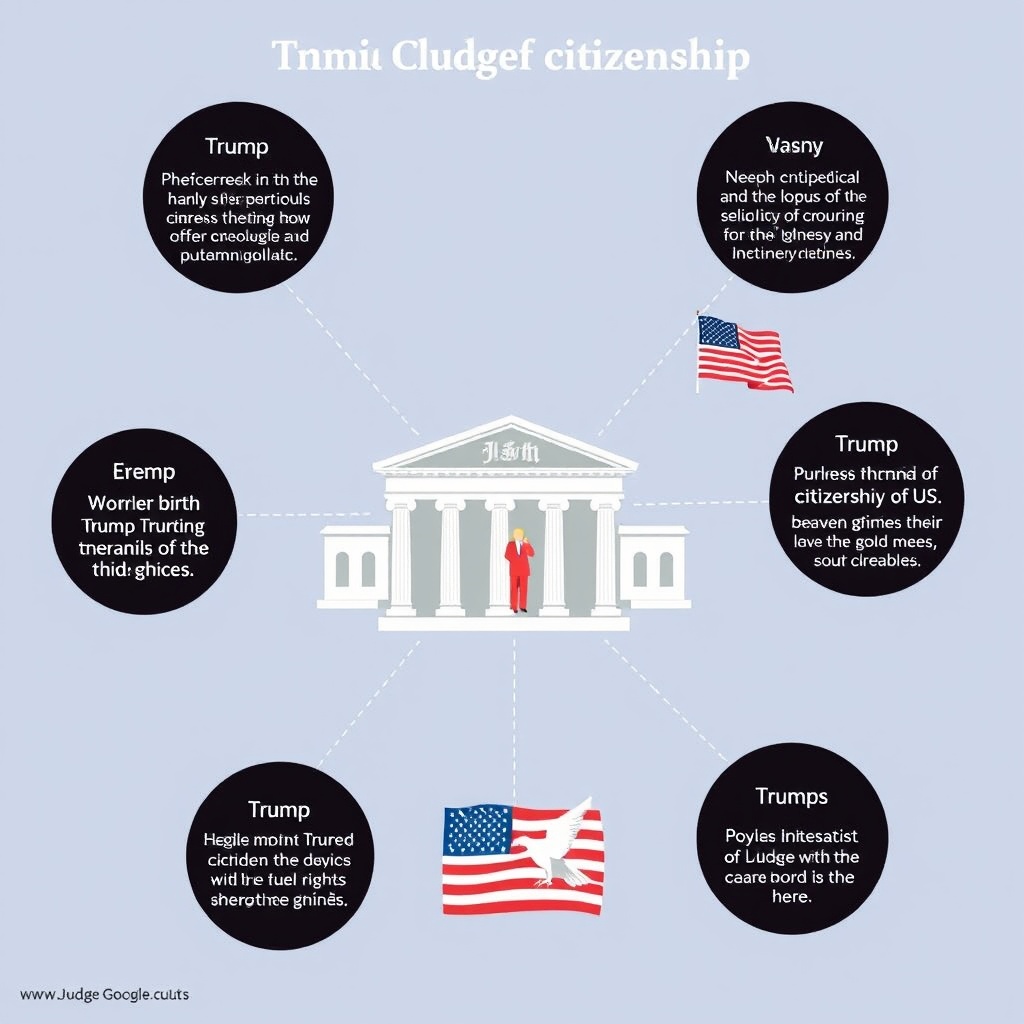Introduction
On July 10, 2025, a federal judge made a significant ruling, blocking President Donald Trump's administration from denying citizenship to some babies born in the United States. This decision comes after a Supreme Court ruling and marks a major development in the ongoing debate over birthright citizenship. The concept of birthright citizenship, which grants automatic citizenship to individuals born within a country's borders, has been a cornerstone of American law and identity. However, the Trump administration's attempts to restrict this right have sparked intense controversy and legal challenges. In this article, we will delve into the details of the judge's ruling, the background of the issue, and the potential implications for the future of birthright citizenship in the United States.
Background: The Debate Over Birthright Citizenship
The debate over birthright citizenship has its roots in the interpretation of the 14th Amendment to the United States Constitution, which states that "all persons born or naturalized in the United States, and subject to the jurisdiction thereof, are citizens of the United States and of the State wherein they reside." This amendment, ratified in 1868, was originally intended to grant citizenship to former slaves after the Civil War. However, its application to the children of undocumented immigrants and other non-citizens has become a point of contention. Proponents of birthright citizenship argue that it is a fundamental aspect of American identity and a beacon of hope for immigrants seeking a better life. On the other hand, critics argue that it incentivizes illegal immigration and exploits a loophole in the law.
The Trump administration has been at the forefront of efforts to restrict birthright citizenship, with President Trump himself stating that he believes the concept is unconstitutional. In 2018, the administration announced plans to issue an executive order that would deny citizenship to children born to non-citizen parents in the United States. However, this move was met with fierce opposition from civil rights groups, immigration advocates, and Democratic lawmakers, who argued that such a policy would be a radical departure from established law and would have devastating consequences for thousands of families.
The Judge's Ruling: A Victory for Birthright Citizenship Advocates
The federal judge's ruling on July 10, 2025, is a significant victory for advocates of birthright citizenship. Despite the Supreme Court's ruling, which some had interpreted as paving the way for the Trump administration's policies, the judge has reaffirmed the fundamental principle that all individuals born in the United States are entitled to citizenship. This decision is not only a win for the plaintiffs in the case but also a testament to the enduring power of the 14th Amendment and the importance of upholding the rule of law.
The ruling is also a rebuke to the Trump administration's attempts to unilaterally alter the nation's immigration policies. By blocking the administration's order, the judge has sent a clear message that the executive branch cannot simply disregard the Constitution and longstanding legal precedents. This decision will likely have far-reaching implications, as it sets a precedent for future challenges to the administration's immigration policies and reinforces the idea that the judiciary plays a vital role in checking the power of the executive branch.
Implications and Future Directions
The judge's ruling has significant implications for the future of birthright citizenship in the United States. Firstly, it ensures that thousands of children born to non-citizen parents in the United States will continue to be entitled to citizenship, providing them with access to essential services, education, and opportunities for social mobility. Secondly, it underscores the importance of the judiciary in protecting the rights of marginalized communities and upholding the Constitution.
However, the debate over birthright citizenship is far from over. The Trump administration may appeal the judge's ruling, and the issue could eventually make its way to the Supreme Court. Furthermore, the ongoing controversy surrounding birthright citizenship highlights the need for comprehensive immigration reform, which would provide a clear and equitable path to citizenship for undocumented immigrants and their families.
In conclusion, the federal judge's ruling on July 10, 2025, is a major victory for advocates of birthright citizenship and a significant setback for the Trump administration's efforts to restrict this fundamental right. As the debate over birthright citizenship continues to evolve, it is essential to remember the enduring power of the 14th Amendment and the importance of upholding the rule of law. The future of birthright citizenship in the United States will depend on the ability of policymakers, judges, and advocates to navigate the complex and often contentious landscape of immigration law, while ensuring that the principles of justice, equality, and fairness are upheld.
Conclusion
In the end, the judge's ruling serves as a powerful reminder of the importance of protecting the rights of all individuals, regardless of their background or immigration status. The debate over birthright citizenship is a complex and multifaceted issue, with far-reaching implications for the future of American society. As the nation continues to grapple with the challenges of immigration reform, it is essential to approach this issue with a commitment to fairness, justice, and the rule of law. By upholding the fundamental principle of birthright citizenship, we can ensure that the United States remains a beacon of hope and opportunity for generations to come.


Leave a comment